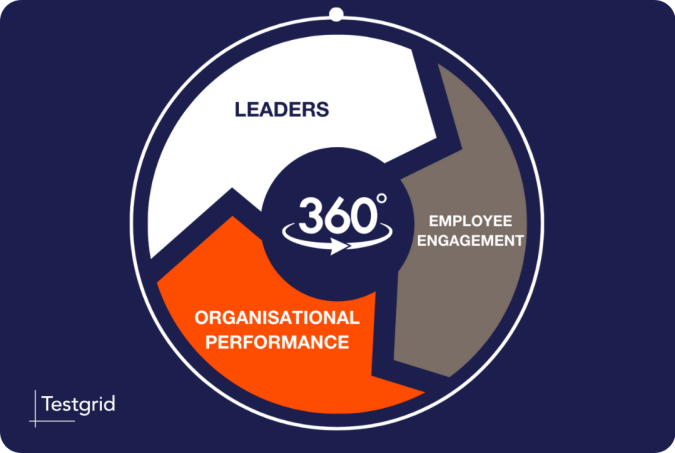Cultivating Emotional Intelligence with 360 Assessments
In the fast-paced landscape of today’s workplaces, success isn’t just about technical skills or qualifications. It’s about how well individuals navigate relationships, communicate with others, and manage their emotions. This is where emotional intelligence and 360 assessments come into play. E.I is defined as the ability to recognise, understand, and manage both our own emotions and those of others. Emerging as a critical factor in determining individual and organisational success, tools to help cultivate E.I in your workplace should be at the forefront of your interest.
With this year’s trends of fostering a stronger E.V.P and boosting employee retention, organisations are actively seeking tools that can accurately assess and cultivate EI among not only new hires, but also their current employees. One such tool gaining popularity in organisations worldwide is the 360 assessment. Join us as we delve into why your organisation should consider leveraging 360 assessments for cultivating improved emotional intelligence among your employees and how this can benefit both the individual and your organisation as a whole.
UNDERSTANDING EMOTIONAL INTELLIGENCE
Before we dive into the role of 360 assessments, let’s first grasp the details of what makes someone emotionally intelligent. At its core, E.I encompasses a range of competencies, including self-awareness, self-regulation, empathy, and social skills. It’s about more than just “being nice”; it’s about understanding ourselves and others on a deeper level, and using that understanding to navigate social interactions effectively.
In many modern-day working environments, where collaboration and teamwork are paramount, individuals with high emotional intelligence are often better equipped to handle the complexities of interpersonal relationships. They’re better communicators, more empathetic listeners, and more adept at resolving conflicts. Organisations that see that value in prioritising the cultivation of E.I are able to foster more positive working environments by improving leadership effectiveness, communication channels and overall organisational culture.
THE ROLE OF 360 ASSESSMENTS IN E.I DEVELOPMENT
BENEFITS OF USING 360 ASSESSMENTS FOR E.I DEVELOPMENT
WHY ORGANISATIONS SHOULD CONSIDER USING 360 ASSESSMENTS FOR E.I DEVELOPMENT
EXAMPLES OF APPLICABLE 360 ASSESSMENTS FOR E.I DEVELOPMENT
CONCLUSION
In conclusion, emotional intelligence is a critical factor in determining individual and organisational success in today’s workplace. By leveraging 360 assessments as a tool for assessing and developing E.I, organisations can enhance self-awareness, identify blind spots, and foster a culture of feedback and continuous improvement. Ultimately, investing in the E.I development of employees through initiatives such as 360 assessments isn’t just beneficial—it’s essential for creating thriving, resilient, and high-performing organisations in the long run.
If you want to get started implementing these high value assessments into your organisation, get in touch with our team learn more!


